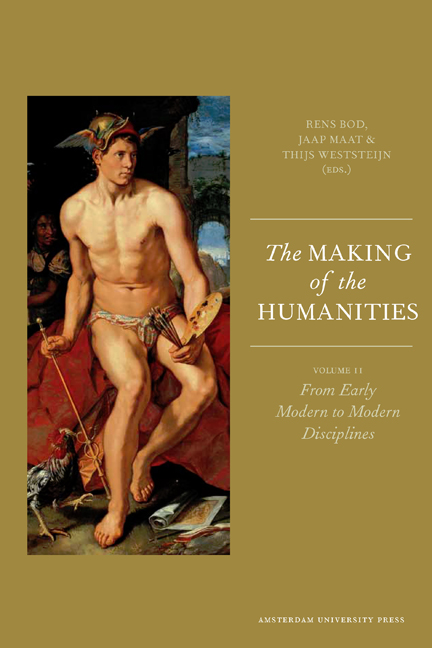Book contents
- Frontmatter
- Contents
- Introduction: The Dawn of the Modern Humanities
- I Linguistics and Philology
- II The Humanities and the Sciences
- III Writing History and Intellectual History
- IV The Impact of the East
- V Artworks and Texts
- VI Literature and Rhetoric
- VII Academic Communities
- Contributors
- List of Figures
- Index
Introduction: The Dawn of the Modern Humanities
Published online by Cambridge University Press: 19 January 2021
- Frontmatter
- Contents
- Introduction: The Dawn of the Modern Humanities
- I Linguistics and Philology
- II The Humanities and the Sciences
- III Writing History and Intellectual History
- IV The Impact of the East
- V Artworks and Texts
- VI Literature and Rhetoric
- VII Academic Communities
- Contributors
- List of Figures
- Index
Summary
This volume investigates the changes in subject, method and institutionalization of the humanities before and after 1800. Was there a revolution in the humanities around 1800 – a sudden shift in the study of the products of the human mind, or were these changes part of a much longer process? The authors address these questions from an overarching perspective for a variety of humanities disciplines: from philology, musicology, art history, linguistics, historiography to literary theory.
This is the second volume in the series The Making of the Humanities which originates from the conference series of the same name. While the first volume dealt with the emergence of the humanities disciplines in the early modern world, the current book centres around the transition from early modern humanities disciplines (i.e. before 1800) to modern disciplines (i.e. after 1800). This transition is generally taken as one of the most important transformations in intellectual history, and has even been regarded as a conceptual and institutional revolution. It is therefore surprising that existing studies rarely if at all take an overarching view on the humanities during this period. Instead they focus on the development of an individual discipline during the decades around 1800, or make a comparison between a couple of disciplines only, such as philology and historiography. By way of a pars pro toto reasoning, the transformations found in one or two disciplines are then generalized to all humanities disciplines. An in-depth cross-comparison of all humanistic activities during the period around 1800 is badly needed, and this volume aims to make a start withit.
The articles in this book were originally presented at the conference The Making of the Humanities II at the University of Amsterdam in 2010. The first conference of this kind, in 2008, was initiated by a group of scholars affiliated to the Universities of Amsterdam, Oxford and St Andrews who wished to explore the history of the humanities in comparison: philology, history, linguistics, musicology, rhetoric, art history, poetics, literary studies, theatre studies, as well as more recent disciplines such as film studies. Such an endeavour had never been taken up before.
- Type
- Chapter
- Information
- The Making of the HumanitiesVolume II: From Early Modern to Modern Disciplines, pp. 9 - 20Publisher: Amsterdam University PressPrint publication year: 2012



